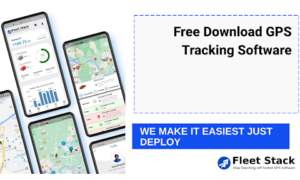Fleet tracking systems have been growing in popularity among trucking companies, and for a good reason. In the past, drivers used to keep a close eye on their vehicles to ensure no issues. However, with the advancement in fleet tracking, it is no longer required. So, what are the actual benefits of implementing a modern fleet tracking system? We’ll find out in this article, but before then, what are fleet tracking systems?
What are Fleet Tracking Systems?
Fleet tracking systems are vehicle tracking solutions like ram tracking that discover vehicles’ movements in a fleet. These systems use GPS technology to track vehicles. Also, they can provide real-time data on vehicles’ locations.
This information displays on a map to watch the movements of vehicles and optimize routes. Fleet tracking systems can also provide data on vehicle speed, idling, and fuel consumption. Having this data available at all times can improve your vehicle’s operations.
Benefits of Modern Fleet Tracking Systems
1. Improves Safety
Modern GPS fleet tracking systems improve safety by tracking vehicle locations in real time. This information prevents accidents and improves response times in an emergency. Also, tracking systems check drivers’ behavior and identify potential safety issues.
Fleet managers can ensure drivers follow the road rules by monitoring vehicle speed and fuel consumption. Moreover, these systems can provide real-time alerts when a driver speeds or not following the route. This helps reduce the risk of accidents by ensuring drivers are aware of their surroundings and driving responsibly.
2. Minimizes Fuel Costs
Businesses that use fleet tracking systems can significantly reduce fuel costs. This technology allows companies to plan routes better and reduce idling time. Drivers can now take efficient routes possible, eliminating unnecessary fuel expenses.
Fleet tracking data also provides valuable insights into driver behavior. Thus, it allows businesses to identify areas where they can make improvements and save money on fuel costs.
Moreover, fleet tracking systems provide real-time information about traffic conditions and road closures. So, drivers can adjust their routes accordingly and avoid delays or detours that could otherwise lead to wasted time and money. With the right fleet tracking system, businesses can maximize their efficiency while minimizing fuel costs.
3. Minimizes Insurance Costs
GPS tracking systems provide several benefits that can help reduce insurance costs. By monitoring the location of vehicles and their drivers, fleet managers can quickly alert the relevant department if a car has deviated from its expected course. This increases the chances of recovery in case of theft or any equipment inside the vehicle.
Additionally, fleet tracking systems grant access to driver behavior, allowing fleet managers to promote a responsible attitude when driving a company vehicle by keeping track of their driving practices.
Due to the improved safety records, insurance companies offer up to 30% discounts on vehicles with GPS tracking systems installed. This opportunity enables businesses to pay lower premiums.
With these savings, businesses can invest more money into other areas of their operations and increase overall efficiency.
4. Better Customer Experience
Improving customer satisfaction is an important goal for any business. With real-time information about the vehicle route and performance, you can ensure that you provide your customers with the best possible service. This information can help businesses to follow statutory regulations. Also, it can provide customers with up-to-date and reliable shipment information.
Providing customers with up-to-date and reliable shipment information can further enhance customer satisfaction. Customers will be able to track their shipments in real-time. So, it allows them to plan and make necessary arrangements if there are delays or changes in the delivery schedule. This will give customers peace of mind knowing that they have access to accurate information about their orders at all times.
Further, this data identifies areas where improvements are needed to serve customers better.
5. Improves Productivity
Fleet tracking is an invaluable tool for improving fleet productivity. By combining location data with engine idling data, fleet managers can identify problem areas and take corrective action. This helps reduce operating costs and improve asset utilization by ensuring that vehicles are used efficiently.
Also, visibility into an entire fleet allows dispatchers to deploy and track vehicles more effectively. This reduces empty miles and improves overall vehicle utilization, resulting in greater efficiency and cost savings.
Moreover, advanced fleet tracking systems can be set up to generate personalized reports and real-time notifications so supervisors can pinpoint certain issue spots. This enables fleets to run as efficiently as possible and maximize productivity while reducing expenses.
Frequently Asked Questions
1. What is Fleet Tracking?
Fleet tracking involves using GPS technology to track the location and movement of vehicles in a fleet. It can also monitor driver behavior, such as speed, fuel consumption, and idle time. This data can then be used to improve efficiency and reduce costs.
2. What Happens If I Don’t Use Fleet Tracking Systems?
Without fleet tracking systems, businesses may not be able to monitor their vehicles and drivers accurately. This can lead to increased costs due to inefficient routes, wasted fuel, and higher insurance premiums.
Conclusion
Modern fleet tracking systems offer numerous benefits to businesses. They can help reduce costs by providing discounts on insurance premiums and improving efficiency through better customer experience. With the right fleet tracking system, companies can maximize their profits while minimizing expenses.

































